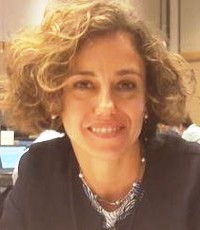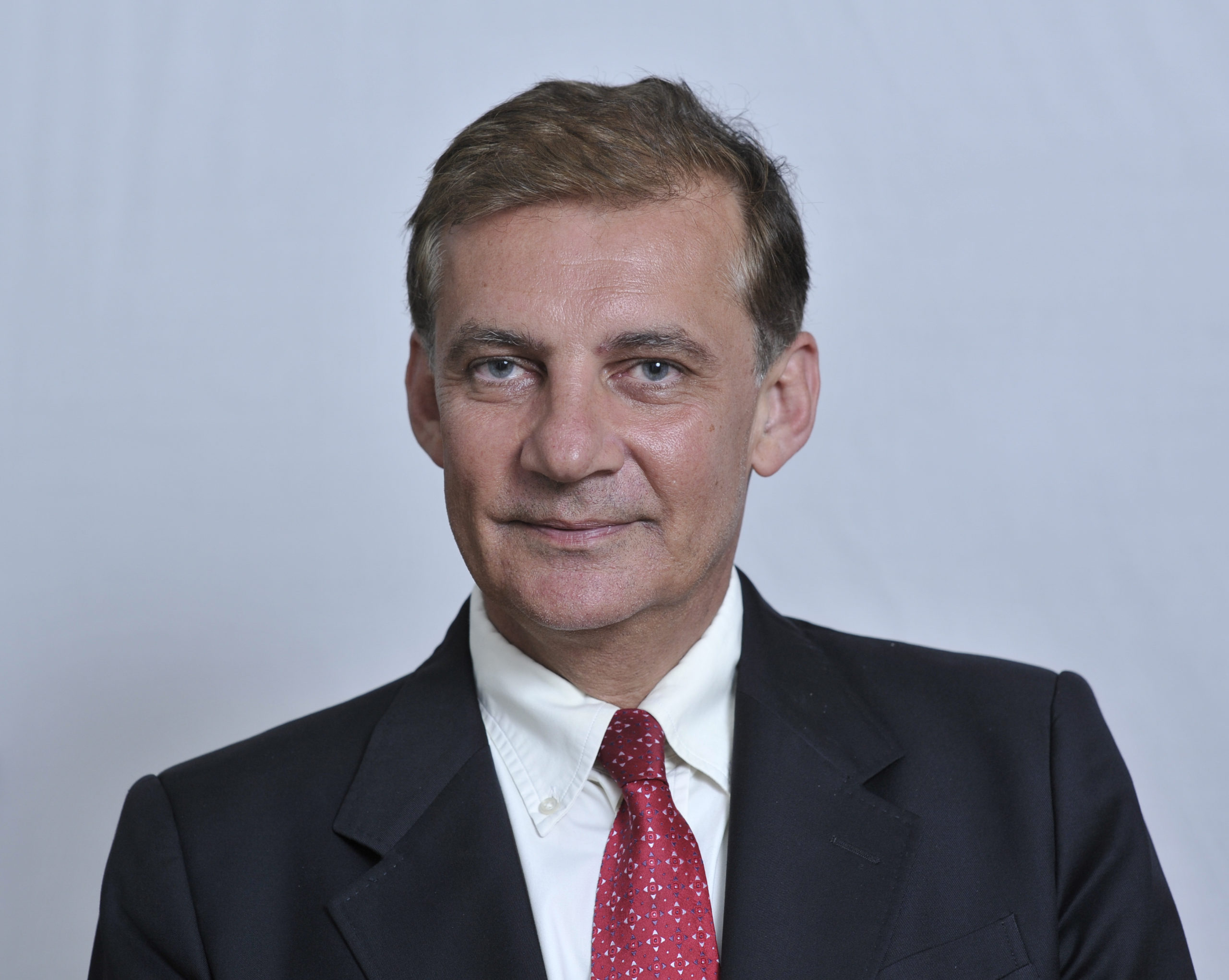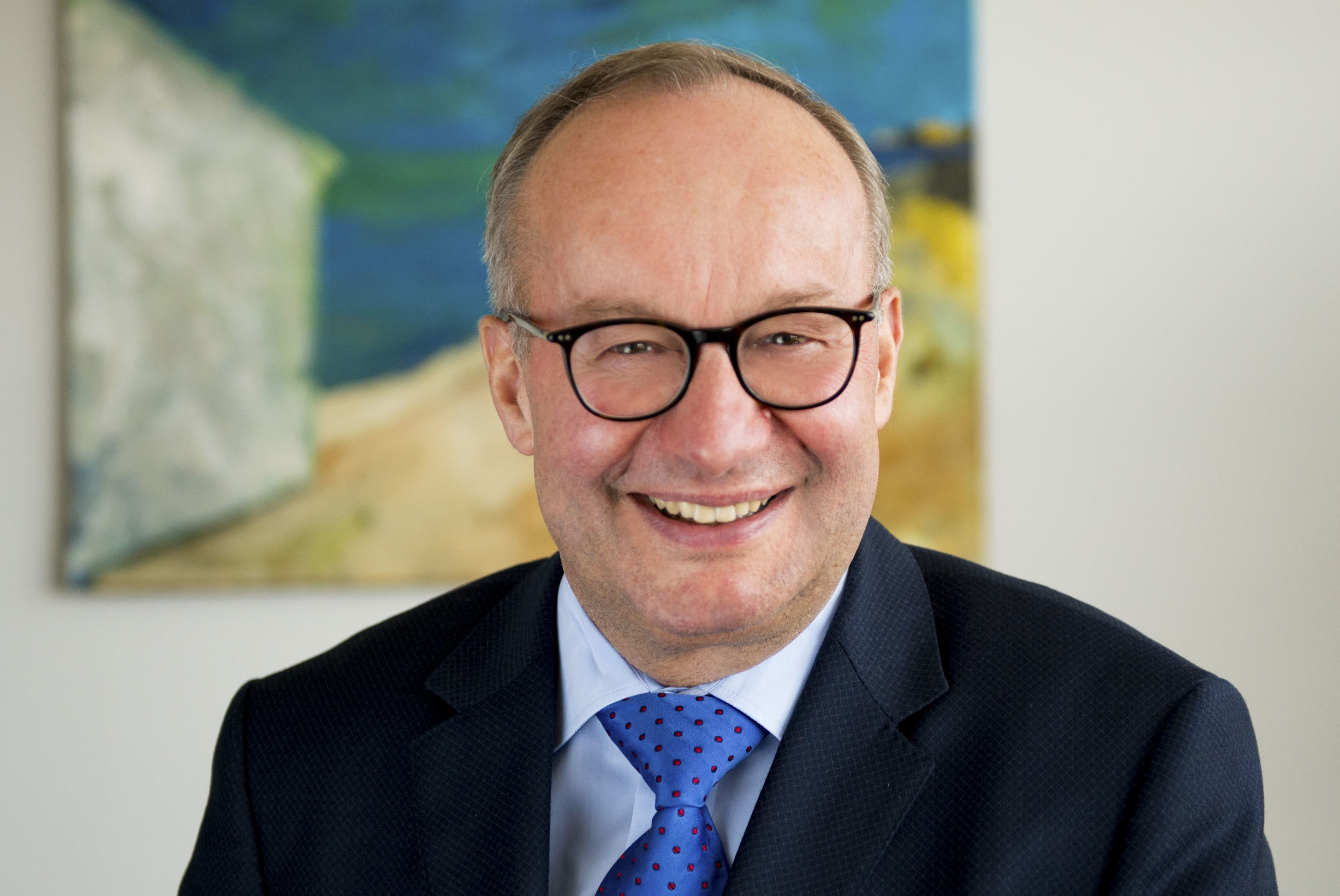touchPANEL DISCUSSION Integrating BCMA-targeting agents into the treatment pathway for relapsed/refractory multiple myeloma
Watch a panel of experts discuss the use of BCMA-targeting agents in the treatment of relapsed/refractory multiple myeloma.

Dr Francesca Gay
University of Turin, Turin, Italy
CHAIR
Panelists:
Introduction
Dr Francesca Gay chairs a discussion with Prof. Meletios Dimopoulos and Prof. Dr. Hermann Einsele about integrating BCMA-targeting agents into the treatment pathway for patients with relapsed/refractory multiple myeloma.
view bio and disclosures 1/4 Next ChapterWhat are the data supporting the use of BCMA-targeting agents for relapsed/refractory multiple myeloma?
The panel outlines the clinical trial data supporting the current use of BCMA-targeting agents for the treatment of relapsed/refractory multiple myeloma. They also consider how the role of BCMA-targeting agents in multiple myeloma may change in the future.
view bio and disclosures 2/4 Next ChapterHow do we identify patients who may benefit from treatment with a BCMA-targeting agent?
The panel considers factors that may help to select patients with relapsed/refractory multiple myeloma who may be suitable for treatment with available BCMA-targeting agents.
view bio and disclosures 3/4 Next ChapterHow can we monitor for and manage the possible adverse events of BCMA-targeting agents?
The panel summarizes the common adverse events associated with BCMA-targeting agents, and how to monitor and manage them in clinical practice.
view bio and disclosures 4/4 Leave FeedbackOverview & Learning Objectives
Overview
In this activity, a panel of experts in multiple myeloma discuss the potential of B-cell maturation antigen (BCMA)-targeting agents to improve outcomes for patients with relapsed/refractory multiple myeloma. They also consider how these agents can be used in clinical practice, including how to identify patients who may benefit and the management of possible adverse events.
Learning Objectives
After watching this activity, participants should be better able to:
- Discuss the potential of BCMA-targeting agents to improve outcomes for patients with relapsed/refractory multiple myeloma
- Identify patients with relapsed/refractory multiple myeloma who may benefit from treatment with a BCMA-targeting agent
- Use strategies to monitor for and manage the adverse events associated with BCMA-targeting agents
Faculty & Disclosures

Dr Francesca Gay
University of Turin, Turin, Italy
Francesca Gay is Associate Professor at the University of Turin, Department of Molecular Biotechnology and Health Sciences, and works as a haematologist in the Myeloma Unit, Division of Hematology, Azienda Ospedaliero-Universitaria Città della Salute e della Scienza di Torino, Turin, Italy. read more
Dr Gay is involved in the design, development and coordination of phase I/II/III clinical trials for the treatment of multiple myeloma in tight collaboration with the European Myeloma Network (EMN), EMN Research Italy and the Gruppo Italiano Malattie Ematologiche dell’Adulto (GIMEMA). She is a member of the EMN Young Board. She is currently the local principal investigator in several multicentre clinical trials.
Dr Gay’s main research focuses on the diagnosis and the clinical and experimental treatment of patients with multiple myeloma and associated disorders, particularly of newly diagnosed patients eligible for autologous stem-cell transplantation. Her interests also include the use of new biological molecules, monoclonal antibodies, immunotherapeutic agents, CAR T-cells and stem-cell transplantation techniques.
Dr Gay is a member of the International Myeloma Society (IMS), EMN, Italian Society of Hematology (SIE), European Hematology Association (EHA) and the American Society of Hematology (ASH). She is author and coauthor of more than 100 papers published in peer-reviewed journals, as well as reviewer for several journals including the Lancet, Leukemia, Lancet Oncology, Lancet Haematology and Haematologica. In 2019, she was awarded the Bart Barlogie Young Investigator Award by the IMS.
Dr Francesca Gay discloses: Advisory fees from AbbVie, Adaptive, Amgen, Bluebird Bio, Bristol Myers Squibb, GlaxoSmithKline, Janssen, Roche and Takeda. Honoraria from AbbVie, Amgen, Bristol Myers Squibb, GlaxoSmithKline, Janssen, Sanofi and Takeda.

Prof. Meletios Dimopoulos
University of Athens, Athens, Greece
Meletios Dimopoulos is Professor and Chairman of the Department of Clinical Therapeutics at the National and Kapodistrian University of Athens School of Medicine, Athens, Greece. read more
Prof. Dimopoulos is a member of numerous scientific societies and has authored more than 1,113 publications (as of November 2020) in peer-reviewed journals, as well as numerous abstracts and several textbook chapters, primarily focusing on plasma cell dyscrasias and genitourinary and gynaecological cancers. He is a reviewer for several journals including the New England Journal of Medicine, Blood, the Journal of Clinical Oncology, Haematologica, Leukemia, Cancer, the European Journal of Haematology, and Leukemia and Lymphoma.
Prof. Dimopoulos was an elected member of the Board of the International Myeloma Society (IMS) from 2013 to 2017. He serves on the Scientific Advisory Boards of the International Myeloma Foundation (IMF) and the International Waldenstrom’s Macroglobulinemia Foundation, and he is a member of the Board of the European Myeloma Network (EMN). In March 2013, Prof. Dimopoulos was elected as a member of the Board of the IMS and he is currently the Chairman of the Greek Myeloma Study Group and the Balkan Myeloma Study Group.
Prof. Dimopoulos has received several awards for his contributions to the field of medicine, including multiple myeloma.
Prof. Meletios Dimopoulos discloses: Advisory Board/Panel fees from Amgen, BeiGene, Bristol Myers Squibb, Janssen and Takeda.

Prof. Dr. Hermann Einsele
University Hospital Würzburg, Würzburg, Germany
Hermann Einsele is Full Professor of Internal Medicine and Director of the Department of Internal Medicine II of the University Hospital Würzburg, Würzburg, Germany. He is a visiting professor at the Fred Hutchinson Cancer Research Center in Seattle, WA, USA and at the City of Hope Hospital, Duarte, CA, USA. read more
Between 2011 and 2015, Prof. Dr. Einsele was Vice Dean of the Faculty of Medicine of the University of Würzburg, and since 2015, he has been Vice President of the Julius Maximilians University of Würzburg. In 1999, he became Chairman of the German Study Group in Multiple Myeloma. In 2003, he received the van Bekkum Award, the highest Annual European award for research in the field of stem-cell transplantation. Prof. Dr. Einsele has published more than 600 articles in peer-reviewed journals.
Prof. Dr. Einsele is an expert in the field of multiple myeloma and stem-cell transplantation, and has pioneered the use of immunotherapy with selected T cells and bispecific antibodies.
Prof. Dr. Hermann Einsele discloses: Advisory Board/Panel fees from Amgen, Bristol Myers Squibb, Celgene, GlaxoSmithKline, Janssen, Novartis, Sanofi and Takeda. Consultant fees from Amgen, Bristol Myers Squibb, Celgene, Janssen, Novartis and Takeda. Grants/research support from Amgen, Bristol Myers Squibb, Celgene, GlaxoSmithKline, Janssen, Novartis and Sanofi.

Register to touchONCOLOGY for FREE
- Peer-reviewed journals and expert opinions
- Interactive CME and e-learning modules
- Video conference highlights


